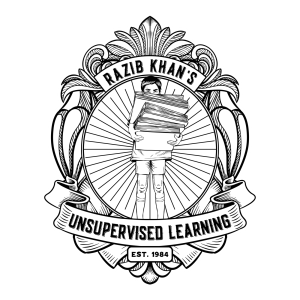
Razib Khan's Unsupervised Learning
Science:Life Sciences

If Amazon has brought supply-chain scale to the US economy, America’s partnership with China has taken the concept of scale to a whole new level. Razib asks about Hart’s experience as a businessman in China ten years ago in the border area between Manchuria and North Korea. Hart recounts several major things he learned about the contrast between the US and China. For example, while Americans focus on fairness and rule of law, the Chinese have no such expectations and are very pragmatic (“don’t argue, pay the bribe!”). Second, the Chinese plan fast and make immediate decisions, and then pivot rapidly off mistakes, while Americans tend to over plan. Though China in the early 2010s was very corrupt, Hart feels the last decade has seen a shift away from those practices.
Another thing that has changed over the last decade has been an awareness that American and Chinese supply chains need to become decoupled to some extent due to both geopolitical and economic considerations. The COVID-19 interruptions in particular have made many Americans aware of how entangled how our own production processes are with China. But changing the current economic relationships may not be so easy. In the mid-2010’s Hart shifted some of his purchasing to Vietnam. Though the Vietnamese are hungrier and cheaper, they naturally lack the scale, efficiency and specialization of their Chinese competitors. Hart also observes that it is clear that the Chinese workers are among the hardest working and most skilled in the world, so they will not be easy to replace. His contacts in the Pacific Rim believe that only India would ever be able to truly substitute for China because of its size and diversity.
Hart notes that one peculiarity of China is that it operates as a large market economy that is culturally less aware of the US than other Asian trading partners. In particular, Chinese English fluency is much lower than that of Indian and Vietnamese. Hart wonders if this state might never change given that the Chinese society and economy are just large enough that they can ignore America more than smaller and less developed nations.
Pivoting back to the US, Razib and Hart discuss the “easy money” policies that have dominated American economic policies over the last few years. Hart argues that the ability of Americans to take on debt enables bad policies, from foreign policy adventures to bailouts of firms that should be allowed to fail. Additionally, he argues that inflation reduces the value of American money and the appeal of investing in US “cash” as the safest investment.
They end the discussion with Hart’s bullishness on East Asian economies, despite the demographic and political headwinds. He also believes that the US has a bright future, but we need to accept that we’ll never have 1990’s hyperpower again.
More Episodes
 2024-11-07
2024-11-07
 2024-11-05
2024-11-05
 2024-10-30
2024-10-30
 2024-07-10
2024-07-10
 2024-07-02
2024-07-02
 2024-06-16
2024-06-16
 2024-06-07
2024-06-07
 2024-05-14
2024-05-14
Create your
podcast in
minutes
- Full-featured podcast site
- Unlimited storage and bandwidth
- Comprehensive podcast stats
- Distribute to Apple Podcasts, Spotify, and more
- Make money with your podcast
It is Free
- Privacy Policy
- Cookie Policy
- Terms of Use
- Consent Preferences
- Copyright © 2015-2024 Podbean.com





